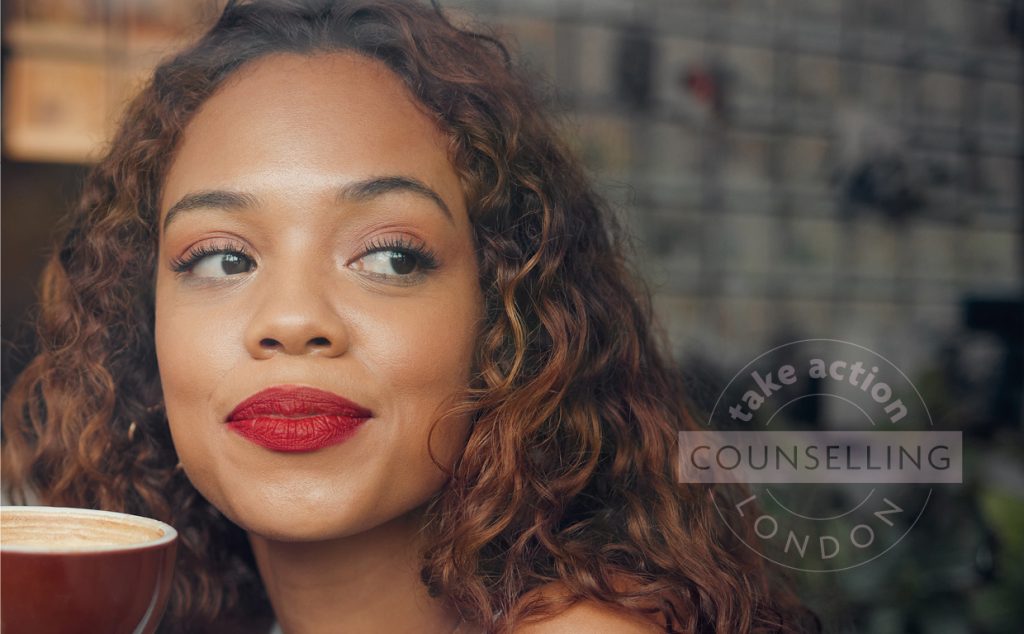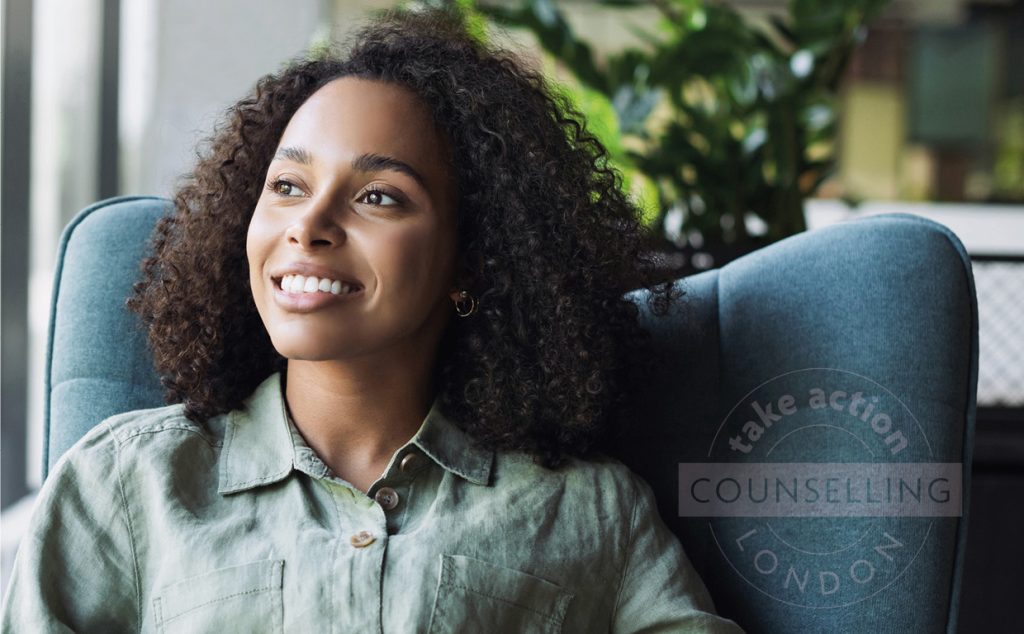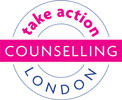Why go to a Counsellor at all?
Talking to friends can be really helpful but sometimes we need to look for professional support in order to get perspective on our past and feel stronger.
Once you have decided that you would like to get some help the next question is where to go and what to look for in a counsellor or therapist. The choice when you look online or in a Directory such as Counselling Directory can be quite overwhelming!
Here are some tips on how to choose a counsellor that is right for you and also what you can expect when you book a session.

Some General Information On Counsellors:
What are the Professional Associations for Counsellors?
The British Association for Counsellors and Psychotherapists (BACP) is the main body in the UK representing counselling at national and international levels. The BACP aims to promote counselling and raise standards of training and practise, and produces a directory from which there is a list of counsellors. In order to be on the BACP directory, counsellors need to have met certain standards and levels of training and experience . They will all also be covered by a Code of Ethics and Practise and a Complaints Procedure. However, there are other professional bodies that also require its members to have reached standards in training and are bound by a practice code. These include the United Kingdom Council for Psychotherapy (UKCP) and the British Psychological Society (BPS). You should check that your counsellor belongs to a professional body where there are professional standards and accountability.
What is the difference between a Psychotherapist and a Counsellor?
This is a hot potato topic amongst counsellors and therapists alike!
The reality is there is a great deal of overlap between the two, but if you wanted to have some ideas it could be true to say that:
Counselling is often used as a term for people who generally in life have a sense of well being but are perhaps facing a difficult life situation and need some short term support.
Psychotherapy could be more helpful for people who have built up a series of problems over a longer period of time and may need support more long term.
Points to consider when you are choosing your counsellor:
What kind of approach does the counsellor have?
There are many different kinds of theories and approaches to counselling work.
Some counsellors are specifically trained in one theory, for example person centred counselling. Or counsellors may be trained in one particular area of counselling – for instance marriage counselling. As a general rule it may not be so important as to what theory the counsellor follows as to the experience they have in the area you would like support in. If you would like more details about different counselling theories there is some helpful explanation on the BACP site (www.bacp.co.uk) and look up “Explanation of Theoretical Approaches”.
Does the counsellor have experience in the area you would like to talk about?
Some counsellors are especially trained or have great deal of experience in a particular area of counselling. For example, a counsellor may be trained to work with couples or perhaps with an addiction. If you are seeking help for a specific issue, like sexual abuse, then ask the counsellor when you first speak to them if they have experience and or training with this issue. You could also ask them if they have been able to help other clients resolve some of their difficulties in this area.
How long are the sessions?
Most counselling sessions are what is known as “the 50 minute hour”. This means that the sessions are actually usually 50 minutes long – and then the last ten minutes the counsellor may spend making notes on the last session and preparing for the next one. However, this is not necessarily the case if you join group counselling which can be much longer – up to an hour and a half. If you are travelling a long way to your session and are seeing your counsellor less than once a week some counsellors are willing to extend the time. You could ask about this on your first contact with the counsellor.
How much you would be expected to pay?
Most counsellors charge for their services. However, there is often quite a wide variety of prices. Some counsellors operate what is known as a “sliding scale” for fees. This means you will be asked to disclose how much you earn and then the fees will be charged accordingly. For example, if you are a student you will be paying less than someone who is earning £30,000 per annum. Also, if you are requesting couples counselling counsellors may charge more for this. Some counsellors do have free places, but this is the exception rather than the rule. However, there are some counselling services that will offer free or reduced rate counselling. You can also ask your GP if they have a counsellor working as part of their surgery practise who offers free counselling.
Long Term or Short Term Counselling?
Counselling can be either long term or short term. Short term counselling is sometimes known as “Time Limited Counselling”. This means that there is a definite number of sessions that you are booked for and it does not usually go beyond that date. Short term counselling is usually applied when there is an immediate crisis or difficulty. Longer term counselling may be appropriate if you feel that there are areas of your life you have been struggling with for a long period of time.
What to do next – Making the first contact:
That first call or email:
It can be quite daunting to think about picking up the phone or sending an email to a complete stranger about their service. Try to remember they are there to help and support you. If you choose to make contact over the phone you can call most counsellors in the day or evening time. Often they will have an answerphone service because they may be working at the time you call. Don’t be put off by this but leave a message and they will get back to you. When you first call or email ask the counsellor to give you information about the hours they work, if they work weekends and evenings and how often sessions are held. Also ask them about their fees and how much they charge for an initial session. Some counsellors do not charge for this, others charge a smaller fee. If you wanted, you can also give a brief explanation of why you are looking for support at this time. You could also ask them about their theoretical approach and their experience. However, you may prefer to leave this until you meet them face to face. You can also think about asking the practical questions listed below.
What type of practical questions to ask:
When you contact the counsellor you have chosen there are some practical questions to consider in your choice. For example, some counsellors have a very small waiting area or even no waiting area! This means you may have to wait outside until your appointment time. You could also ask about transport facilities, train, tube and bus routes. If you are travelling by car you should ask about parking and if you need to about how much money for the meter. You can also ask about toilet facilities – don’t assume there is one!
Does the counsellor fit with you:
For some people it is important to have a counsellor who reflects their own lifestyle, choices, race, sexuality , values or beliefs. For example, if you are a Muslim you may feel more comfortable with a Muslim counsellor who shares the same faith as you. Or if you are a woman you may prefer to see a woman counsellor. There is another side to this though, and that is, if, for example, you are struggling with your relationships with men it could be to your advantage to see a male counsellor where you could actually work together on the issues you are finding challenging. Some counsellors will openly advertise their religion or sexuality – so clients know this – other counsellors keep this information private. However, if there is something that is really important to you; then ask your counsellor when you first meet them where they stand on this issue, so you are both clear about this in both your minds.
Booking an initial session:
When you book a first session try and arrive with some specific areas you want to work on. This is not always easy but for example, perhaps instead of saying “I feel unhappy” try and think about what it is specifically it is you are unhappy about for example “I have recently broken up with a partner” or perhaps “I have lost my job and it is affecting my self confidence.” So you know yourself what you want to work on during your sessions. At the first session it is usual for your counsellor to ask you about your past so although it may seem daunting or maybe you might think him/her a bit nosy they are actually trying to see how they can help you to get where you want to be. So, expect to be asked some personal questions.
Drawing up a Contract:
During the first meeting your counsellor may ask you if you want to book a series of sessions with him/her. This means that together you will sign a contract that both of you agree on stating the number of sessions, the fees and the time of the sessions. Both parties then agree to keep this contract, and then if at the end of it you feel you need more sessions you will sign a new contract together.

Keep Going!
Lastly, don’t give up!!! If the first counsellor you contact does not meet your requirements keep going until you find someone that can give you the support and help you need. Help and support is definitely out there.
For more information on our services, please email rebecca@takeactioncounselling.co.uk.
You can also email us with any questions.
